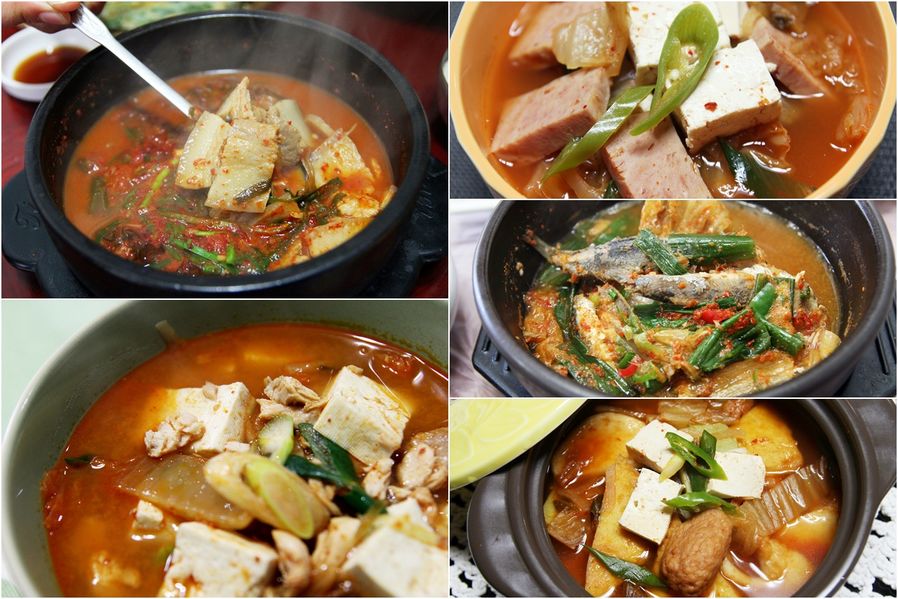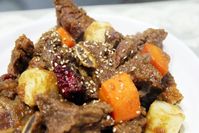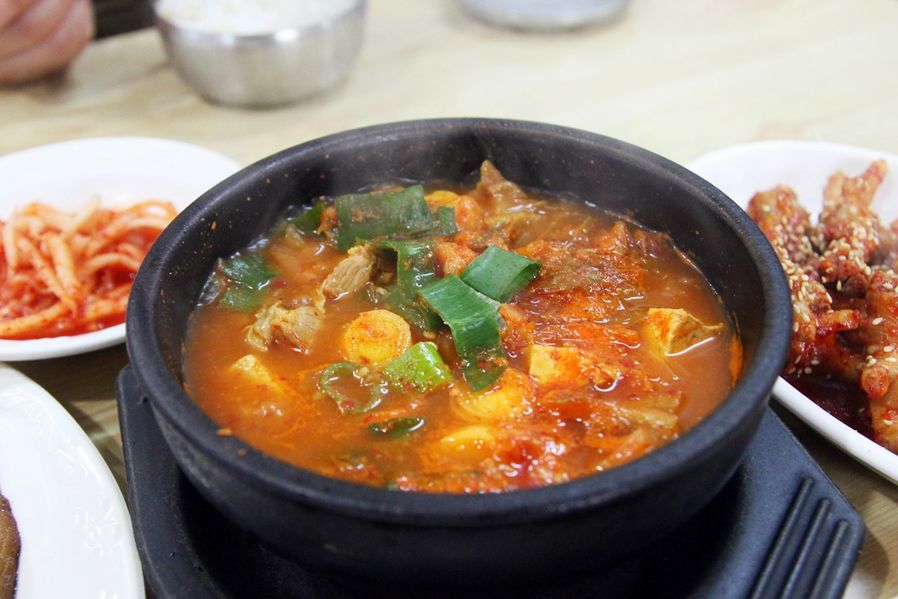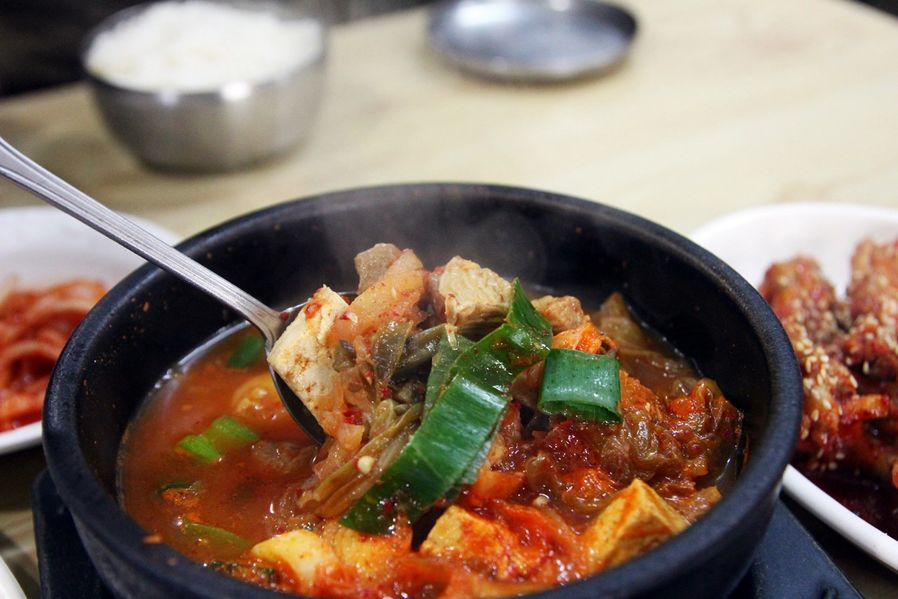1. Ingredients for Kimchi Jjigae
-Primary ingredients: Kimchi and water
-Secondary ingredients: Seasoning (chili powder and salt), tofu, meat, etc.
2. Taste evaluation
-Spicy:★★★☆☆
-Salty:★★★☆☆
-Sweet:★☆☆☆☆
-Sour:★★☆☆☆
3.
Introduction to Kimchi Jjigae (Kimchi stew)
Koreans
eat rice with soup like Jjigae almost all the time. And the most
popular and common one is called Kimchi Jjiae.
It’s
made by boiling water with well-known Korean traditional food,
Kimchi, along with tofu, meat and other ingredients as you like.
It’s
another way to enjoy Kimchi so I’m going to introduce it to you.
Although
Kimchi Jjigae is one of Koreans’ favorite soup recipes, its history
is merely 100 years.
Koreans
started to produce napa cabbages since the 19th
century and the recipe using napa cabbages and red seasoning sauce
was introduced and passed down to later generations since then.
It’s believed that the leftovers from every meal or those that are too old to eat have been naturally used in Jjigae by boiling them in water.
Kimchi
Jjigae should use Kimchi that’s fermented enough to taste sour. Raw
Kimchi that’s just made does not have a deep flavor or scent.
Put
fermented Kimchi into water and add pork, fish(anchovies) and tofu in
it. For young people, you could always add canned ham instead, and
add more seasoning such as chili powder and salt according to your
preference.
Regular
and original Kimchi Jjigae uses pork.
Raw
Kimchi is crunchy but Kimchi boiled in water is so soft and that
makes the soup taste sour and spicy. And greasy pork meat is chewy
and tasty.
If
you’re satisfied with Kimchi taste during your trip, I want you to
try Kimchi with different recipe.
Searchon Wikipedia
4.
Kinds of Kimchi Jjigae
Kimchi
Jjigae is easily found on anyone’s dinner table in Korea so there
are so many recipes according to the cook’s preferences. Meat and
tofu is usually added but some add ham or canned tuna for children.
-
Regular Kimchi Jjigae: Boiling water with Kimchi in it and adding
tofu at the end
-
Pork Kimchi Jjigae: Adding pork meat to regular Kimchi Jjigae
- Tuna Kimchi Jjigae: Adding canned tuna to regular Kimchi Jjigae
- Ham Kimchi Jjigae: Adding ham (canned hams like Spam ham) to regular Kimchi Jjigae

5.
How to enjoy Kimchi Jjigae even more
As
Korean dinner table consists of rice, side dishes and Jjigae, it’s
better to have it with a bowl of rice whichever you order.
Especially
Kimchi stew uses strong sauce so you’d have to eat it with rice
than eat it alone.
Koreans
think that any soup or stew should be served very hot. So Jjigae is
served in a heat-resisting earthen pot.
You’re
supposed to eat this spicy liquid when it’s still hot so it might
be painful for foreigners.
So
I want you to try bits of Kimchi, meat and tofu first. And when
you’re used to the spicy taste and the soup is cooled down, try it.
You
might find that it is a neat version of Tom Yum Kung from Thailand
but without spices and condiments.












